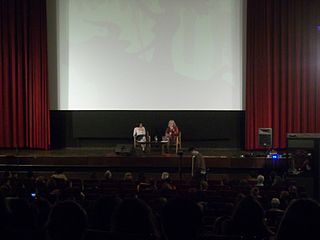A Quote by Joan Rivers
I blame my mother for my poor sex life. All she told me was 'the man goes on top and the woman underneath.' For three years my husband and I slept in bunk beds.
Related Quotes
Before we make love my husband takes a pain killer.
I blame my mother for my poor sex life. All she told me was, 'the man goes on top and the woman underneath'. For three years my husband and I slept on bunk beds.
I'm a double bagger. Not only does my husband put a bag over my face when we're making love, but he also puts a bag over his head in case mine falls off.
It's so long since I've had sex, I've forgotten who ties up whom.
My best birth control now is to leave the lights on.
The woman who runs the Pennsylvania Innocence Project told me that there's a man she's been trying to get out of prison for 26 years. Every night before she goes to bed, she thinks, 'What is he doing?' She says you don't sleep. And yet, she has the greatest sense of humor and this light that comes out of her.
I talked to my mother about it a lot. I asked her what it was like to grow up in New York and Harlem in the 1920s and 1930s, and I asked her about a woman leaving her husband. I asked her about how she would feel about that woman, and my mother grew up in the Church Of God In Christ, and she told me that the woman might be isolated because the other women thought she might go and come after their husbands. That's how they thought then.
A friend, who's a psychologist, told me about a patient once: a woman who was well educated, had a good job, a house and a loving husband. "I did everything right in my life," said the woman. "But I'm still not happy." She never did what she herself wanted, but what she believed society expected from her.
Nora leaves her husband, not-as the stupid critic would have it-because she is tired of her responsibilities or feels the need of woman's rights, but because she has come to know that for eight years she had lived with a stranger and borne him children. Can there be anything more humiliating, more degrading than a life-long proximity between two strangers? No need for the woman to know anything of the man, save his income. As to the knowledge of the woman-what is there to know except that she has a pleasing appearance?
I always tell this story: When I started, the woman went to the store to buy a dress. She saw it in pink and red, and then she remembered that the husband, who is probably going to pay for the dress, loves it in pink. So she buys the pink. Today, the same woman goes to the store and remembers the husband likes pink, and she buys the red.
I never asked my mother where babies came from but I remember clearly the day she volunteered the information....my mother called me to set the table for dinner. She sat me down in the kitchen, and under the classic caveat of 'loving each other very, very much,' explained that when a man and a woman hug tightly, the man plants a seed in the woman. The seed grows into a baby. Then she sent me to the pantry to get placemats. As a direct result of this conversation, I wouldn't hug my father for two months.
To call woman the weaker sex is a libel; it is man's injustice to woman. If by strength is meant brute strength, then, indeed, is woman less brute than man. If by strength is meant moral power, then woman is immeasurably man's superior. Has she not greater intuition, is she not more self-sacrificing, has she not greater powers of endurance, has she not greater courage? Without her, man could not be. If nonviolence is the law of our being, the future is with woman. Who can make a more effective appeal to the heart than woman?
































